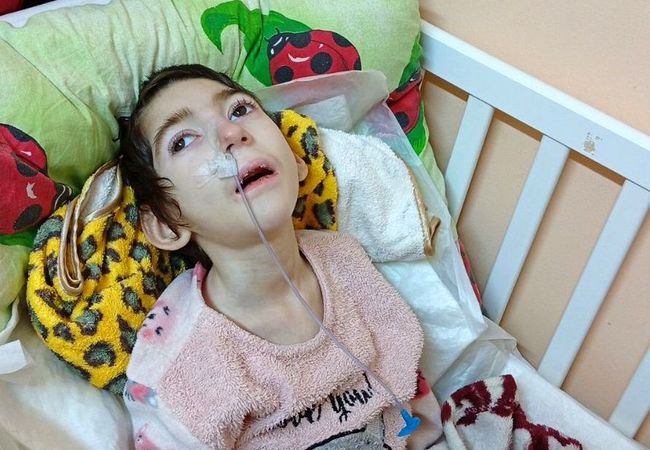
Today, Ukraine talks about its two most ambitious goals - reconstruction and membership in the EU. Both of these processes should be accompanied by the abandonment of psycho-neurological institutions and the process of deinstitutionalization. These are the recommendations Ukraine received last year from the UN Committee on the Rights of Persons with Disabilities. In addition, in a separate Manual on deinstitutionalization, the Committee emphasized that peace-building processes should be accompanied by a refusal to rebuild and/or reconstruct places of detention (psycho-neurological institutions), because the boarding system of social and medical services in itself does not comply with the UN Convention on the Rights of Persons with Disabilities disability, to which Ukraine has been a party since 2010. The reform of approaches to the provision of social and rehabilitation services, as well as the commitment to support member states in their efforts to carry out deinstitutionalization reforms, are laid down in the strategy of the European Commission "Union of Equality: Strategy for the Rights of People with Disabilities 2021-2030".
Instead, the report "Rapid Assessment of Damages and Needs, February 2022 - February 2023" jointly prepared by the World Bank together with the European Union, the United Nations, and the Government of Ukraine refers to a request from the Government of Ukraine to rebuild psycho-neurological institutions in particular. The state is asking for $127.5 million to rebuild places of detention instead of starting to change the system and ensure the right to independent life with the help of international partners.
Such a request to rebuild an inhumane system is a disregard of Ukraine's obligations in the field of human rights, as well as new challenges facing the country due to the war. When the need for effective social services, the possibility of supported decision-making and independent living in communities only grows in the conditions when, due to the war in Ukraine, a large number of people have lost their homes and established social ties, or have been injured and traumatized. Back in 2014-2015, the public sector drew the attention of the state to the fact that mass forced resettlement, as well as the aftermath of the war, lead to an increase in forced institutionalization in conditions where the existing system of social services and rehabilitation, as well as communities, cannot offer alternatives. In 2022-2023, this problem only intensified. And the answer to such a forced and new wave of institutionalization should not be the restoration of psycho-neurological institution buildings, but the reform of the entire system of social policy and support services and the transition to a model of independent living in communities and supported decision-making, so that every person in Ukraine can meet the restoration with dignity and with the opportunity enjoy human rights on an equal basis with others.
We call on the government of Ukraine and the President to abandon the reconstruction of the destroyed psycho-neurological institutions and now to start the reform of social services, including those provided in the psycho-neurological institutions. Already in 2023, Ukraine has:
1. To commit to deinstitutionalization.
2. To reform the existing legislation on deprivation of legal capacity and introduce tools for supported decision-making.
3. Start providing support services for independent living of people with disabilities in communities.
We also appeal to Ukraine's foreign partners, in particular the United Nations, the European Union and the World Bank, with a request to support Ukraine in implementing deinstitutionalization in accordance with the EU Strategy on the Rights of Persons with Disabilities and the Recommendations of the UN Committee on the Rights of Persons with Disabilities.
Together, we must make the reconstruction of Ukraine aimed at ensuring human rights.
To support our appeal to the Government of Ukraine and the President - leave a signature on the link
Certificate:
For more than 30 years of independence, the Ukrainian authorities have not started a comprehensive program for the transition from the residential system of "care" to the creation of models of supported decision-making, independent living in communities and changes in approaches to the recognition of capacity. In 2023, Ukraine still cannot abandon the sprawling and complex, expensive and inefficient, dangerous and inhuman system of psycho-neurological institutions, where incapacitated adults with disabilities and older people live. In 2023, Ukraine still calls such psycho-neurological institutions places where people receive "social care services" and does not recognize that such institutions should not exist in a country that aspires to join the European Union. The reform of the children's residential care system, which began in 2017, was not completed and did not include steps to reform the system of "care" for adults.
According to the data of state authorities and public monitors, as of 2023, there are 260 residential "care" facilities in the territory under the control of the government of Ukraine where adults with disabilities and older people live, of which at least 27 psycho-neurological institutions and 11 psychiatric health care facilities are located in zone of regular artillery fire.
Among other things, the Ukrainian system of residential "care" is distinguished by the large size of institutions, which, as the experience of 2014 showed and the events of 2022 confirmed, makes it impossible to quickly respond and effectively evacuate people. The average size of institutions is 200-300 people, while the largest residential facility for adults with disabilities and older people is designed to accommodate 700 people at a time. During 2022 - the beginning of 2023, only 46 residential institutions of the system of social protection of the population were evacuated, as well as patients who were subjected to coercive measures of a medical nature and who were in medical institutions of the Kharkiv and Donetsk regions. On the territory not controlled by Ukraine (temporarily occupied in 2022), there are 24 residential institutions and 7 institutions for the provision of psychiatric care.
The efforts of public organizations have documented numerous war crimes committed by the russian military against residents and staff of institutions and the destruction of buildings. In addition, according to data received from regional military administrations in response to requests for information, 25 places of deprivation of liberty in the social sphere were damaged (as of the beginning of 2023, only institutions for adults).
Of course, people who live permanently in psycho-neurological institutions need support and assistance, from safe living conditions to access to justice and reparations in cases where they are victims of war crimes.
However, the key challenge facing the government of Ukraine is to abandon the system of institutional "care" and create conditions for the transition to a model of supported decision-making and independent living in communities. Of course, this is a long process that must be carefully planned together with the disability community and the public sector. But this process should start already today, when the existing residential system has already proven its inefficiency. After all, neither in conditions of peace nor in conditions of war, the state is unable to guarantee respect for human dignity and ensure human rights in residential institutions, which was repeatedly pointed out by the monitors of the National Preventive Mechanism and international experts from the UN Committees on Combating Torture and the Rights of Persons with Disabilities.



